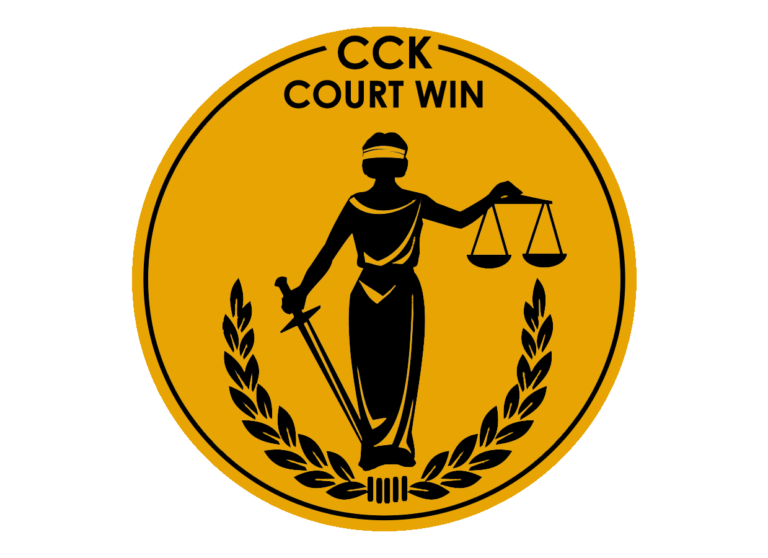Board Denies Service Connection for Ischemic Heart Disease and TDIU, CCK Secures Remand at Court

CCK Law: Our Vital Role in Veterans Law
Factual and Procedural History
The Veteran served on active duty in the United States Navy from September 1962 to August 1966, including service aboard the USS Enterprise stationed in the Gulf of Tonkin off the coast of Vietnam.
PTSD and TDIU
In July 2008, the Regional Office granted the Veteran’s claim for service connection for post-traumatic stress disorder (PTSD) and assigned a 30 percent disability rating, effective February 2007, the date of his claim. The Veteran appealed for a higher rating and eventually attended a Board hearing in November 2011. At the hearing, the Veteran reported having lapses in judgment, obsessive rituals, and unprovoked periods of violence. He also stated that he experienced short-term memory loss and flashbacks, as well as suicidal and homicidal thoughts. After the hearing, the Veteran raised entitlement to a total disability rating based on individual unemployability (TDIU) as part of his increased rating claim. In May 2013, he submitted a report from a private psychologist, who opined that the Veteran was unable to secure or maintain substantially gainful employment since 2002 because of his PTSD. The private psychologist acknowledged the Veteran’s long work history, but stated that he appeared to benefit considerably from his supervisor’s kindness in allowing him to work alone or with only one other worker to avoid conflicts, for which he was very well known. Additionally, the psychologist noted that recent work in the medical area has consistently supported the finding that chronic PTSD can and does lead to a marked and increased likelihood of cardiac illness.
The Board of Veterans’ Appeals remanded the Veteran’s increased rating claim for PTSD and entitlement to TDIU in August 2013. The Board instructed the Regional Office to schedule the Veteran for a medical examination to determine if his PTSD precludes him from substantially gainful employment. In December 2013, the Veteran attended an examination in which the examiner noted symptoms of depressed mood, anxiety, suspiciousness, weekly panic attacks, chronic sleep impairment, mild memory loss, disturbances of motivation and mood, and difficulty in establishing and maintain relationships. However, the examiner determined that his PTSD did not preclude him from substantially gainful employment consistent with his education and occupational experience. Shortly after, the Regional Office increased the Veteran’s initial disability rating for PTSD to 50 percent. The Veteran passed away in July 2015 and his wife was substituted into the appeals process. From there, the Board issued a decision in May 2016 increasing the Veteran’s initial PTSD rating to 70 percent. In the same decision, the Board remanded entitlement to TDIU, finding it inextricably intertwined with the remanded matter of benefits for ischemic heart disease.
Ischemic Heart Disease
In April 2011, the Veteran filed a claim for service-connected compensation for ischemic heart disease (IHD). The following year the Regional Office denied his claim and he perfected an appeal to the Board. In May 2016, the Board remanded the Veteran’s claim for a medical opinion to determine whether his IHD was caused or aggravated by his service-connected PTSD. Several months later, an examiner opined that it was less likely than not that the Veteran’s IHD was proximately due to or the result of his service-connected PTSD. The examiner further stated it is less likely than not that the Veteran’s PTSD significantly contributed to the development of his heart condition, explaining that he had three major risk factors. As a result, the examiner concluded that those risk factors are more likely than PTSD to have contributed to the Veteran’s heart condition. However, the Board found this opinion inadequate in August 2017, because the examiner had not stated whether the Veteran’s PTSD aggravated his IHD and did not provide reasoning as to why an opinion could not be provided without resorting to speculation. The Board remanded the Veteran’s claim for a new medical opinion.
In a December 2017 addendum opinion, the examiner reiterated it is less likely than not that the Veteran’s PTSD contributed significantly to the development of his heart condition, and it is less likely than not that his IHD was permanently aggravated beyond its natural progression by PTSD. The examiner provided identical rationale for his conclusion.
Board denies Veteran’s claims for IHD and TDIU
In March 2018, the Board issued a decision that denied entitlement to (1) benefits for the Veteran’s IHD, including as secondary to his service-connected PTSD; and (2) TDIU. In its decision, the Board found the VA medical opinions adequate and relied on them to make its decision. Specifically, the Board determined the August 2016 and December 2017 opinions were collectively found to be of great probative weight. In regards to TDIU, the Board found that the record as a whole did not support a finding that the Veteran was unable to obtain or maintain substantially gainful employment consistent with education and occupational history because of his PTSD. Instead, the Board stated the Veteran maintained substantially gainful employment for many years before his non-service-connected heart condition rendered him unemployable.
CCK argues against inadequate medical opinions, Court agrees
CCK successfully appealed to the Court of Appeals for Veterans Claims (CAVC) the Board decision that denied service connection for IHD, including as secondary to herbicide exposure or to PTSD, and entitlement to TDIU.
Ischemic Heart Disease
CCK argued that the Board relied on inadequate VA medical opinions that opined that the Veteran’s service-connected PTSD was not a significant contributor to his IHD. Furthermore, CCK argued that (1) the Board previously found one of the examinations inadequate, but was now relying on it to make its decision; (2) one opinion was based on speculation and included rationale identical to the already deemed inadequate examination; and (3) all examinations failed to properly address whether the Veteran’s IHD was aggravated by his PTSD.
The Court agreed that the Board already found the August 2016 medical opinion inadequate but then relied on it to deny service connection for IHD. Additionally, the Court agreed that the December 2017 medical opinion had nearly identical rationale as the August 2016 opinion that the Board had already found inadequate. Here, the Board provided no explanation of why it now found that rationale to be sufficient. As such, the Veteran’s service connection claim for IHD was remanded for the Board to reassess the adequacy of the medical opinions of record. The Court also concluded that, on remand, the Board must address the theory of entitlement to benefits based on herbicide exposure in light of Procopio.
TDIU
For the issue of TDIU, CCK argued that the Board erred because it relied on the Veteran’s pre-retirement and pre-claim work history to find that the Veteran’s PTSD did not prevent him from working. CCK also argued that the Board failed to adequately account for the 2013 private opinion that found the Veteran unable to work since 2002 because of his PTSD. The Court agreed that the Board relied on the Veteran’s ability to work before his retirement in 2002 but that it needed to discuss whether the Veteran’s PTSD rendered him unemployable during the period on appeal, which began in 2008. The Court further agreed that although the Board discussed the 2013 opinion, it looked at the wrong parts and did not address in its analysis the private psychologist’s opinions that the Veteran’s PTSD symptoms severely affected his ability to work since 2002. Accordingly, the issue of TDIU was remanded back to the Board for readjudication as well.
About the Author
Share this Post
